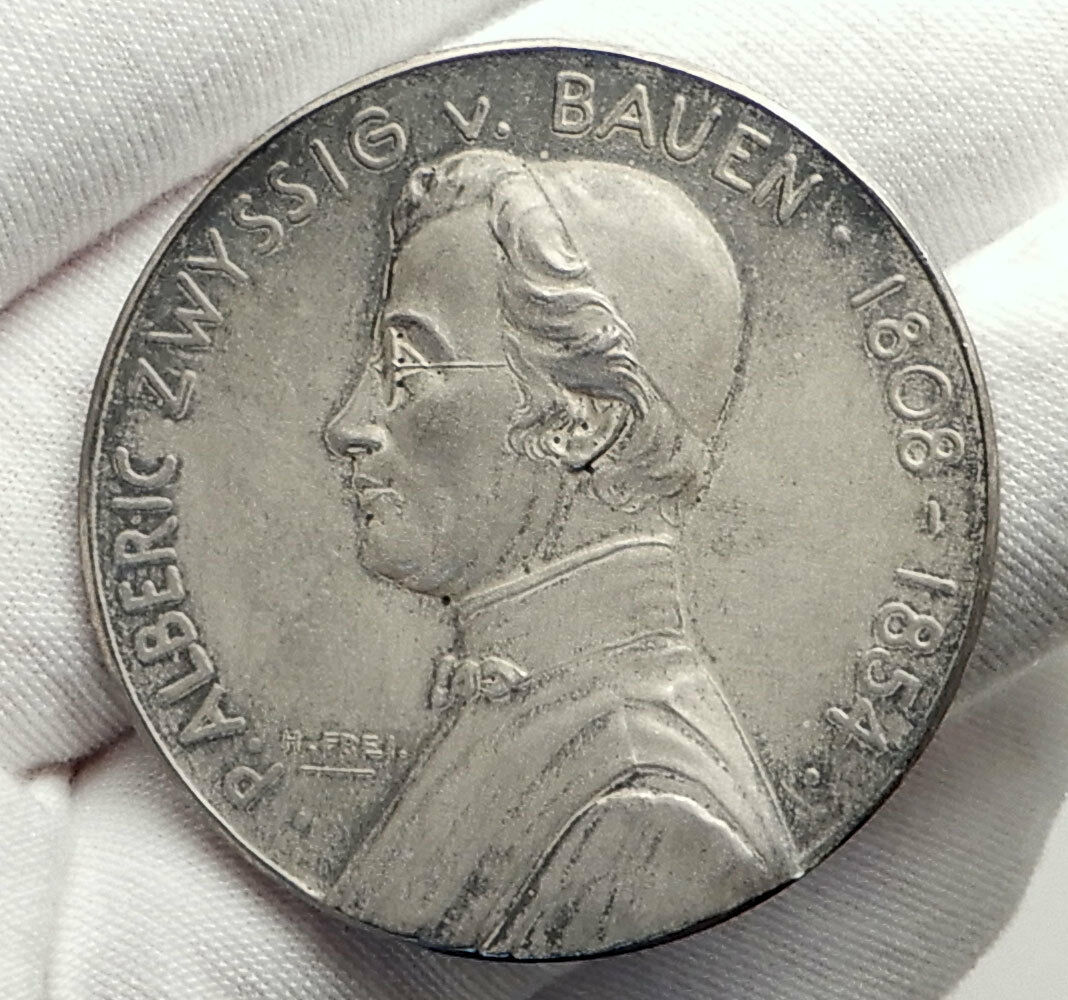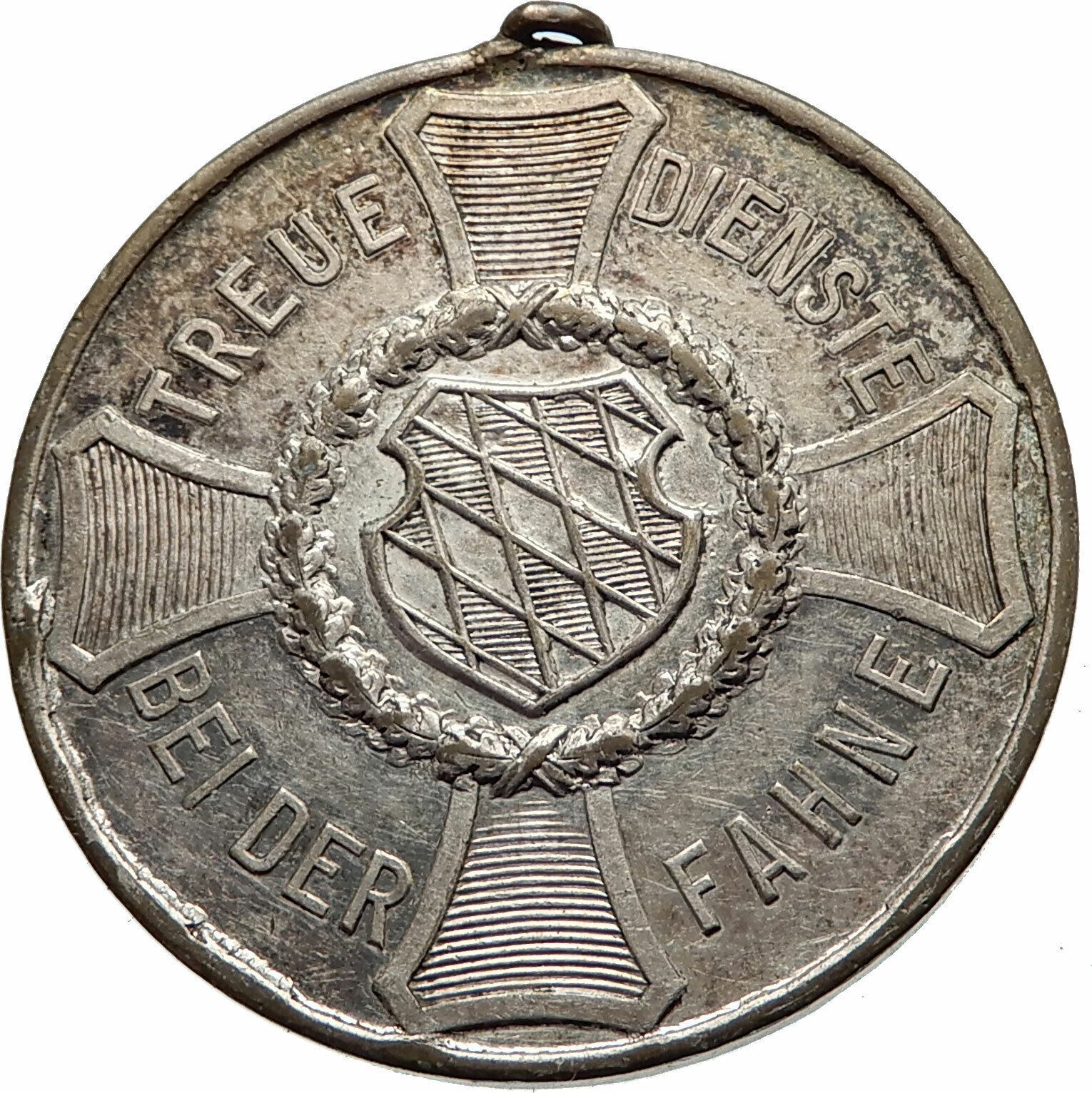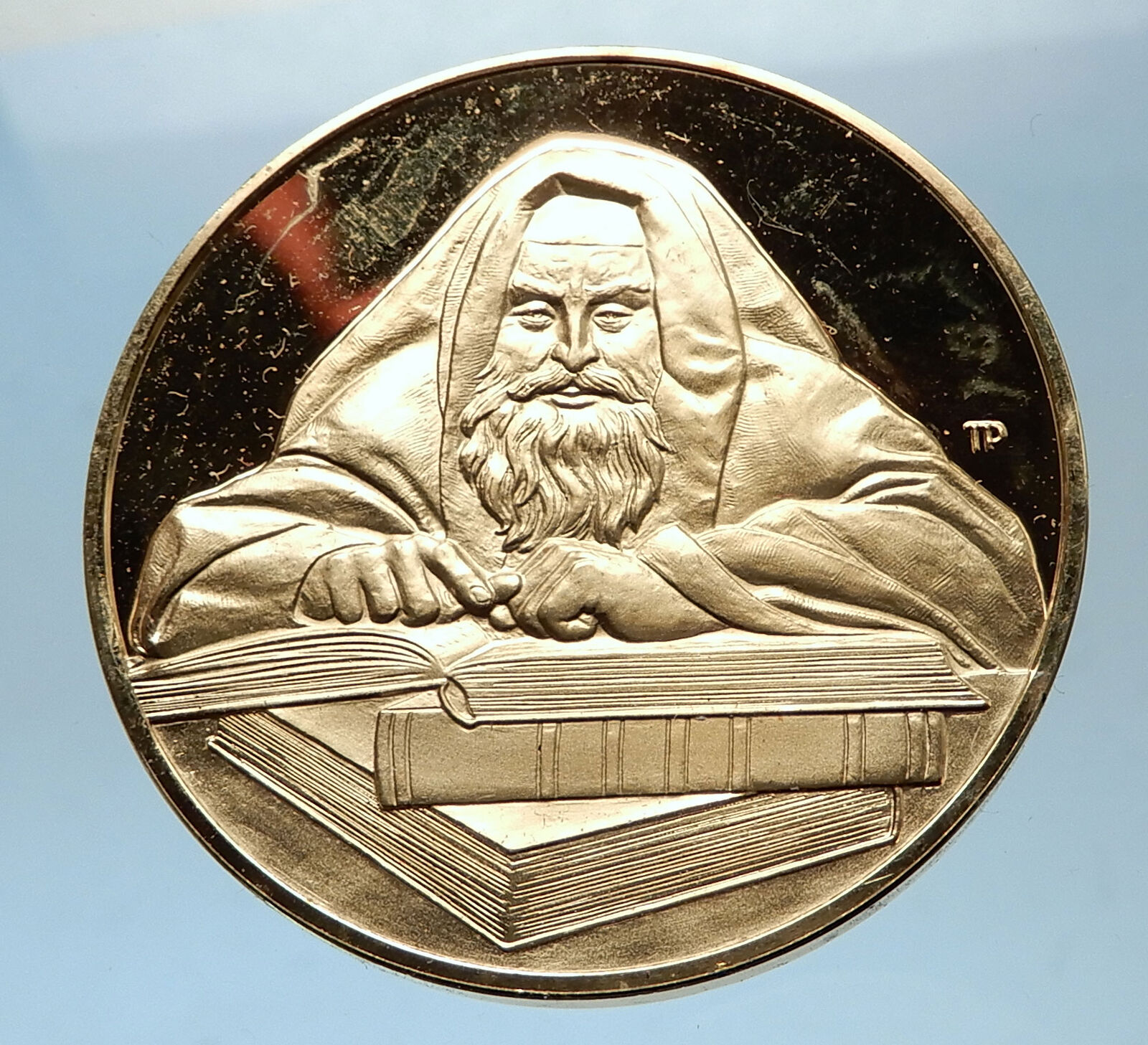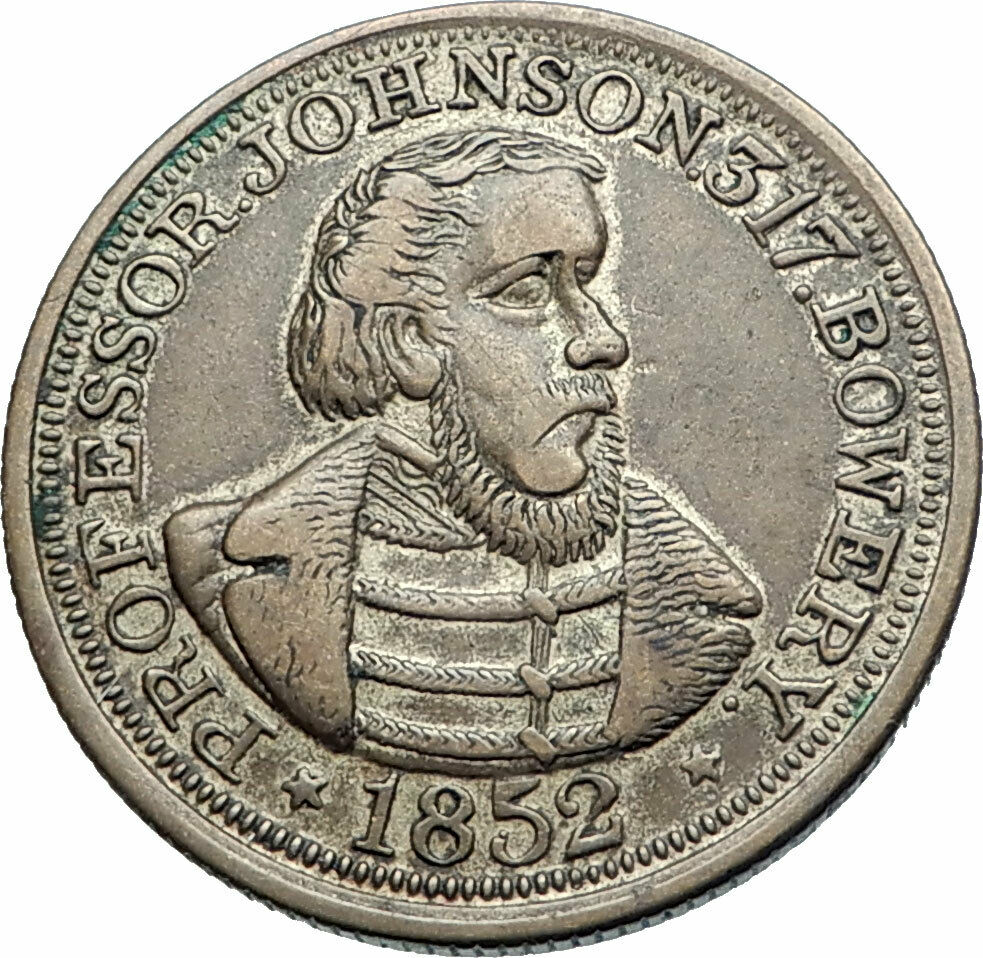|
Choosing the Twelve Apostles – The Temptation Medal
Proof Silver Medal 39mm (26.81 grams)
CHOOSING THE TWELVE APOSTLES, Jesus in boat with fisherman.
THE TEMPTATION E FRUDAKIE, Jesus with winged figure.
Notes:
The commissioning of the Twelve Apostles is an episode in the ministry of Jesus that appears in all three Synoptic Gospels: Matthew 10:1–4, Mark 3:13–19 and Luke 6:12–16. It relates the initial selection of the Twelve Apostles among the disciples of Jesus.
You are bidding on the exact item pictured, provided with a Certificate of Authenticity and Lifetime Guarantee of Authenticity.
Click here to see all Christian Medals and Objects for Sale
_-_James_Tissot.jpg/220px-Brooklyn_Museum_-_The_Exhortation_to_the_Apostles_(Recommandation_aux_apôtres)_-_James_Tissot.jpg) The Twelve Apostles The Twelve Apostles
The three Synoptic Gospels record the circumstances in which some of the disciples were recruited, Matthew only describing the recruitment of Simon, Andrew, James, and John. All three Synoptic Gospels state that these four were recruited fairly soon after Jesus returned from being tempted by the devil.
Despite Jesus only briefly requesting that they join him, they are all described as immediately consenting, and abandoning their nets to do so. Traditionally the immediacy of their consent was viewed as an example of divine power, although this statement is not made in the text itself. The alternative and much more ordinary solution is that Jesus was simply friends with the individuals beforehand, as implied by the Gospel of John, which states that Peter (Simon) and Andrew were disciples of John the Baptist, and started following Jesus as soon as Jesus had been baptized.
Albright and Mann extrapolate from Simon’s and Andrew’s abandonment of their nets that Matthew is emphasizing the importance of renunciation by converting to Christianity, since fishing was profitable, although required large start-up costs, and abandoning everything would have been an important sacrifice. Regardless, Simon and Andrew’s abandonment of what were effectively their most important worldly possessions was taken as a model by later Christian ascetics.
Matthew describes Jesus meeting James and John, also fishermen and brothers, very shortly after recruiting Simon and Andrew. Matthew and Mark identify James and John as sons of Zebedee. Luke adds to Matthew and Mark that James and John worked as a team with Simon and Andrew. Matthew states that at the time of the encounter, James and John were repairing their nets, but readily joined Jesus without hesitation.
This parallels the accounts of Mark and Luke, but Matthew implies that the men have also abandoned their father (since he is present in the ship they abandon behind them), and Carter feels this should be interpreted to mean that Matthew’s view of Jesus is one of a figure rejecting the traditional patriarchal structure of society, where the father had command over his children; most scholars, however, just interpret it to mean that Matthew intended these two to be seen as even more devoted than the other pair.
The Synoptic Gospels go on to describe that much later, after Jesus had later begun his ministry, he noticed, while teaching, a tax collector in his booth. The tax collector, called Matthew in Matthew 9:9, Levi in Mark 2:14 and Luke 5:27, is asked by Jesus to become one of his disciples. Matthew/Levi is stated to have accepted and then invited Jesus for a meal with his friends. Tax collectors were seen as villains in Jewish society, and the Pharisees are described as asking Jesus why he is having a meal with such disreputable people. The reply Jesus gives to this is now well known: “it is not the healthy who need a doctor, but the sick. I have not come to call the righteous, but sinners”.
.jpg/220px-Pope_John_XXIII_-_1959_(cropped).jpg) Pope John XXIII (Latin: Ioannes; Italian: Giovanni; born Angelo Giuseppe Roncalli, Italian pronunciation: [ˈandʒelo dʒuˈzɛppe roŋˈkalli]; 25 November 1881 – 3 June 1963) was head of the Catholic Church and sovereign of the Vatican City State from 28 October 1958 to his death in 1963; he was canonized on 27 April 2014. Angelo Giuseppe Roncalli was one of thirteen children born to a family of sharecroppers who lived in a village in Lombardy. He was ordained to the priesthood on 10 August 1904 and served in a number of posts, as nuncio in France and a delegate to Bulgaria, Greece and Turkey. In a consistory on 12 January 1953 Pope Pius XII made Roncalli a cardinal as the Cardinal-Priest of Santa Prisca in addition to naming him as the Patriarch of Venice. Pope John XXIII (Latin: Ioannes; Italian: Giovanni; born Angelo Giuseppe Roncalli, Italian pronunciation: [ˈandʒelo dʒuˈzɛppe roŋˈkalli]; 25 November 1881 – 3 June 1963) was head of the Catholic Church and sovereign of the Vatican City State from 28 October 1958 to his death in 1963; he was canonized on 27 April 2014. Angelo Giuseppe Roncalli was one of thirteen children born to a family of sharecroppers who lived in a village in Lombardy. He was ordained to the priesthood on 10 August 1904 and served in a number of posts, as nuncio in France and a delegate to Bulgaria, Greece and Turkey. In a consistory on 12 January 1953 Pope Pius XII made Roncalli a cardinal as the Cardinal-Priest of Santa Prisca in addition to naming him as the Patriarch of Venice.
Roncalli was unexpectedly elected pope on 28 October 1958 at age 76 after 11 ballots. Pope John XXIII surprised those who expected him to be a caretaker pope by calling the historic Second Vatican Council (1962-1965), the first session opening on 11 October 1962. His passionate views on equality were summed up in his statement, “We were all made in God’s image, and thus, we are all Godly alike.”
John XXIII made many passionate speeches during his pontificate. He made a major impact on the Catholic Church, opening it up to dramatic unexpected changes promulgated at the Vatican Council and by his own dealings with other churches and nations. In Italian politics, he prohibited bishops from interfering with local elections, and he helped the Christian Democratic Party to cooperate with the socialists. In international affairs, his “Ostpolitik” engaged in dialogue with the Communist countries of Eastern Europe. He especially reached out to the Eastern Orthodox churches. His overall goal was to modernize the Church by emphasizing its pastoral role, and its necessary involvement with affairs of state. He dropped the traditional rule of 70 cardinals, increasing the size to 85. He used the opportunity to name the first cardinals from Africa, Japan, and the Philippines. He promoted ecumenical movements in cooperation with other Christian faiths. In doctrinal matters, he was a traditionalist, but he ended the practice of automatically formulating social and political policies on the basis of old theological propositions.
He did not live to see the Vatican Council to completion. His cause for canonization was opened on 18 November 1965 by his successor, Pope Paul VI, who declared him a Servant of God. On 5 July 2013, Pope Francis – bypassing the traditionally required second miracle – declared John XXIII a saint, based on his virtuous, model lifestyle, and because of the good which had come from his having opened the Second Vatican Council. He was canonised alongside Pope John Paul II on 27 April 2014.[10][11] John XXIII today is affectionately known as the “Good Pope” and in Italian, “il Papa buono”.
|





_-_James_Tissot.jpg/220px-Brooklyn_Museum_-_The_Exhortation_to_the_Apostles_(Recommandation_aux_apôtres)_-_James_Tissot.jpg) The Twelve Apostles
The Twelve Apostles.jpg/220px-Pope_John_XXIII_-_1959_(cropped).jpg) Pope John XXIII (Latin: Ioannes; Italian: Giovanni; born Angelo Giuseppe Roncalli, Italian pronunciation: [ˈandʒelo dʒuˈzɛppe roŋˈkalli]; 25 November 1881 – 3 June 1963) was head of the Catholic Church and sovereign of the Vatican City State from 28 October 1958 to his death in 1963; he was canonized on 27 April 2014. Angelo Giuseppe Roncalli was one of thirteen children born to a family of sharecroppers who lived in a village in Lombardy. He was ordained to the priesthood on 10 August 1904 and served in a number of posts, as nuncio in France and a delegate to Bulgaria, Greece and Turkey. In a consistory on 12 January 1953 Pope Pius XII made Roncalli a cardinal as the Cardinal-Priest of Santa Prisca in addition to naming him as the Patriarch of Venice.
Pope John XXIII (Latin: Ioannes; Italian: Giovanni; born Angelo Giuseppe Roncalli, Italian pronunciation: [ˈandʒelo dʒuˈzɛppe roŋˈkalli]; 25 November 1881 – 3 June 1963) was head of the Catholic Church and sovereign of the Vatican City State from 28 October 1958 to his death in 1963; he was canonized on 27 April 2014. Angelo Giuseppe Roncalli was one of thirteen children born to a family of sharecroppers who lived in a village in Lombardy. He was ordained to the priesthood on 10 August 1904 and served in a number of posts, as nuncio in France and a delegate to Bulgaria, Greece and Turkey. In a consistory on 12 January 1953 Pope Pius XII made Roncalli a cardinal as the Cardinal-Priest of Santa Prisca in addition to naming him as the Patriarch of Venice. 




